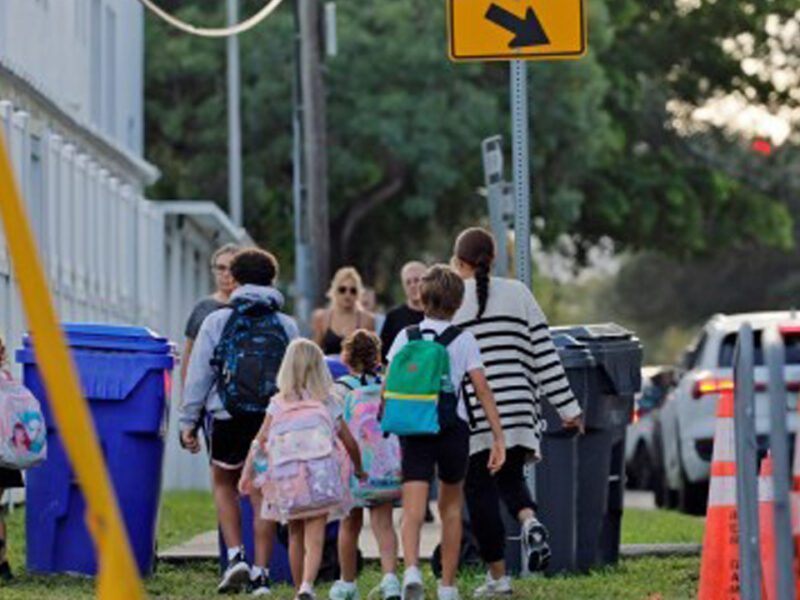Broward’s elementary schools will start publishing their list of books. Some deemed ‘objectionable’ might get tossed.
South Florida Sun-Sentinel | By Lisa J. Huriash | September 6, 2022
Every book at Broward’s elementary school libraries will be catalogued and posted online so parents can review content for anything they find objectionable.
The School District is expected to formally vote on the new policy as early as next week in order to comply with a new state law.
School district officials said Tuesday it has always cataloged its books for grades K-12, but what will be new is making that list easy to find on each elementary school’s website. Also new: teachers grades pre-K through the third grade must be sure no content is about sexual orientation or gender identity.
But for some board members, it might not go far enough.
Daniel Foganholi, a School Board member appointed by Republican Gov. Ron DeSantis, said it seemed like a “loophole” that the district wasn’t also including classroom libraries, which are the books on classroom shelves that teachers choose for their own students.
Outside of the meeting, he told the South Florida Sun Sentinel his request is for the district to be “proactive and extend it to to the classroom through policy.”
That got pushback from one other School Board member.
“I do not support having our teachers having to catalog their classroom libraries,” said Sarah Leonardi. “It’s a tedious task, and the law does not require it. Our teachers every year have more and more menial tasks put on them they do not need more of.”
The School District must be in compliance with state law; next week’s vote would be a formality to create the operational changes.
According to a Broward district memo, each elementary school must publish on its website, in a searchable format, a list of all materials maintained in the school library media center or required as part of the school or grade-level reading list.
The parent of a student enrolled in a Broward public school who objects to the use of specific instructional book or materials being used in a school curriculum or the media center may request a personal conference with the principal or the principal’s designee to discuss the use of the material.
If an objection is made, the state requires a “Library Advisory Committee,” which will have an odd number of voting members, which will “make its decision determine by the simple majority to retain, move the resource to a different level, or remove the resource. This will be a secret ballot vote.”
Among the options for books that will be forced to disappear: “Selling the materials to used book dealers, recycling plants, pulp mills or other persons, firms or corporations as are most economically advantageous to the district school board.”
Stephana Ferrell, an Orange County mother and co-founder of the Florida Freedom to Read Project, said that it’s Florida’s more conservative counties that are now including classroom libraries in their cataloguing. The “more progressive counties have done what they had to do to meet the law,” she said, which has meant only school libraries.
She said throughout the state, some districts have even stopped Scholastic book fairs because not every book has been “signed off” and “verified” by administration.
“It’s been long understood that school districts have control over curriculum and standards,” she said, and equally understood that what’s in the library for voluntary reading has more flexibility and not dictated by “ideology as long as books are factually accurate and provide literary value.”
By publishing its lists online, “this allows these conservative groups to check ahead of time which books are available where.”
“It’s incredibly alarming,” Ferrell said of Foganholi’s request, which adds another layer to the law. “The classroom library is for voluntary reading.”
The two key laws in question are HB 1467 and HB 1557. The first deals with school books, and the second, dubbed “don’t say gay” by critics, prohibits instruction in sexual orientation or gender identify in the primary grades and in other grades if not “age appropriate.”
DeSantis signed both into law this spring, with support from the Moms for Liberty and other conservative parent groups. The laws passed as parents throughout the state pushed for certain books to be yanked from school libraries.
“We’re going to make sure parents have a seat at the table,” DeSantis said at the March 25 bill signing for HB 1467. For state leaders who support the new laws, HB 1467 aims to make school districts more “transparent” about what materials are taught and what library books are in the stacks.






